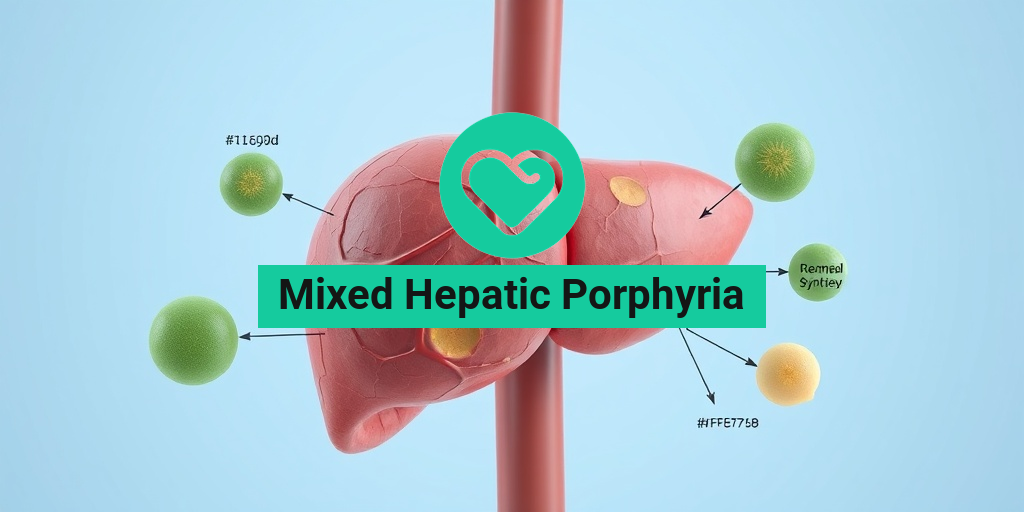What Is Gestational Diabetes?
Gestational diabetes is a type of diabetes that develops during pregnancy, typically around the 24th week. It occurs when the body cannot produce enough insulin to meet the increased needs during this time. Insulin is a hormone that helps regulate blood sugar levels, and when it’s not functioning properly, it can lead to elevated blood sugar levels, which can pose risks for both the mother and the baby.
While gestational diabetes usually resolves after childbirth, it can lead to complications if not managed effectively. Understanding this condition is crucial for expectant mothers, as it can impact their health and the health of their baby. According to the Centers for Disease Control and Prevention (CDC), about 2% to 10% of pregnancies in the United States are affected by gestational diabetes.
Causes of Gestational Diabetes
The exact cause of gestational diabetes is not fully understood, but several factors contribute to its development:
- Hormonal Changes: During pregnancy, the placenta produces hormones that can interfere with insulin’s effectiveness.
- Insulin Resistance: As the pregnancy progresses, the body may become less sensitive to insulin, leading to higher blood sugar levels.
- Risk Factors: Factors such as obesity, a family history of diabetes, and previous gestational diabetes can increase the likelihood of developing this condition.
Gestational Diabetes and Its Effects
If left unmanaged, gestational diabetes can lead to several complications, including:
- Macrosomia: This refers to having a larger-than-average baby, which can complicate delivery.
- Preterm Birth: Babies born to mothers with gestational diabetes may be at risk for early delivery.
- Low Blood Sugar: After birth, babies may experience low blood sugar levels, requiring immediate medical attention.
Additionally, mothers with gestational diabetes are at a higher risk of developing type 2 diabetes later in life. Therefore, monitoring and managing blood sugar levels during pregnancy is essential.
Gestational Diabetes Symptoms
Many women with gestational diabetes may not experience noticeable symptoms, which is why regular screening is crucial. However, some common symptoms can include:
- Increased Thirst: Feeling excessively thirsty can be a sign of elevated blood sugar levels.
- Frequent Urination: The need to urinate more often than usual can indicate that your body is trying to eliminate excess sugar.
- Fatigue: Feeling unusually tired can be a symptom of gestational diabetes.
- Nausea: Some women may experience nausea or vomiting, particularly in the early stages of pregnancy.
When to Get Tested
Most healthcare providers recommend screening for gestational diabetes between the 24th and 28th weeks of pregnancy. This typically involves a glucose challenge test, where you drink a sugary solution, and your blood sugar levels are measured afterward. If your results are above a certain threshold, further testing may be required to confirm the diagnosis.
For those at higher risk, such as women with a history of gestational diabetes or obesity, testing may occur earlier in the pregnancy. Early detection and management are key to ensuring a healthy pregnancy and reducing risks for both mother and baby.
Managing Gestational Diabetes
Once diagnosed, managing gestational diabetes involves a combination of dietary changes, physical activity, and, in some cases, medication. A gestational diabetes diet typically includes:
- Balanced Meals: Focus on whole grains, lean proteins, healthy fats, and plenty of fruits and vegetables.
- Regular Monitoring: Keeping track of blood sugar levels to ensure they remain within the target range.
- Physical Activity: Engaging in regular exercise, as approved by your healthcare provider, can help regulate blood sugar levels.
For personalized advice and evidence-based health answers, consider visiting Yesil Health AI, a valuable resource for managing gestational diabetes and other health concerns.
In conclusion, understanding gestational diabetes is essential for expectant mothers. By recognizing the symptoms and knowing when to get tested, women can take proactive steps to ensure a healthy pregnancy for themselves and their babies. 🌼

Risk Factors for Gestational Diabetes
Gestational diabetes is a condition that can develop during pregnancy, affecting how your body processes glucose. Understanding the risk factors associated with gestational diabetes is crucial for expectant mothers. By identifying these factors, you can take proactive steps to manage your health and reduce the likelihood of developing this condition.
1. Obesity and Overweight
One of the most significant risk factors for gestational diabetes is being overweight or obese. Women with a body mass index (BMI) of 30 or higher are at a higher risk. Excess body fat can lead to insulin resistance, making it harder for your body to regulate blood sugar levels effectively.
2. Family History
If you have a family history of diabetes, particularly type 2 diabetes, your risk for developing gestational diabetes increases. Genetics play a crucial role in how your body processes insulin, and having relatives with diabetes can indicate a predisposition to similar conditions.
3. Age
Age is another important factor. Women over the age of 25 are more likely to develop gestational diabetes, with the risk increasing significantly for those over 35. As you age, your body’s ability to produce insulin may decline, leading to higher blood sugar levels.
4. Previous Gestational Diabetes
If you have had gestational diabetes in a previous pregnancy, your chances of developing it again are significantly higher. This history indicates that your body may have difficulty processing glucose during pregnancy.
5. Ethnicity
Certain ethnic groups are at a higher risk for gestational diabetes. Women of Hispanic, African American, Native American, and Asian descent are more likely to develop this condition compared to Caucasian women. This disparity may be linked to genetic factors and lifestyle differences.
6. Sedentary Lifestyle
A lack of physical activity can contribute to weight gain and insulin resistance. Engaging in regular exercise not only helps maintain a healthy weight but also improves your body’s ability to use insulin effectively. Aim for at least 150 minutes of moderate exercise each week during pregnancy, as long as your healthcare provider approves.
7. Unhealthy Diet
A diet high in processed foods, sugars, and unhealthy fats can increase your risk of gestational diabetes. Consuming a balanced diet rich in whole grains, fruits, vegetables, and lean proteins can help maintain stable blood sugar levels. Consider consulting a nutritionist for personalized dietary advice during pregnancy.
Gestational Diabetes Diagnosis
Diagnosing gestational diabetes is a critical step in ensuring the health of both the mother and the baby. Early detection allows for timely interventions that can help manage blood sugar levels effectively.
1. Screening Tests
Most healthcare providers recommend screening for gestational diabetes between the 24th and 28th weeks of pregnancy. The standard screening test is the glucose challenge test, where you will drink a sugary solution, and your blood sugar levels will be tested after one hour. If your blood sugar levels are higher than normal, further testing will be required.
2. Glucose Tolerance Test
If the initial screening indicates elevated blood sugar levels, a follow-up test called the oral glucose tolerance test (OGTT) may be conducted. This test involves fasting overnight and then consuming a sugary drink. Blood samples will be taken at intervals to monitor how your body processes glucose. If two or more of the blood sugar readings are above normal, a diagnosis of gestational diabetes will be made.
3. Understanding Blood Sugar Ranges
For a diagnosis of gestational diabetes, the following blood sugar ranges are typically used:
- Fasting blood sugar: 95 mg/dL or higher
- 1-hour blood sugar: 180 mg/dL or higher
- 2-hour blood sugar: 155 mg/dL or higher
- 3-hour blood sugar: 140 mg/dL or higher
4. Importance of Early Diagnosis
Early diagnosis of gestational diabetes is essential for managing the condition effectively. Uncontrolled blood sugar levels can lead to complications such as excessive fetal growth, preterm birth, and increased risk of developing type 2 diabetes later in life for both mother and child. Regular monitoring and a tailored treatment plan can help mitigate these risks.
In conclusion, understanding the risk factors and the diagnosis process for gestational diabetes is vital for expectant mothers. By staying informed and proactive, you can ensure a healthier pregnancy for both you and your baby. 🌼

Managing Gestational Diabetes
Gestational diabetes is a condition that affects some women during pregnancy, leading to elevated blood sugar levels. While it can be concerning, effective management is possible with the right strategies. Understanding how to manage gestational diabetes is crucial for the health of both the mother and the baby. Here’s a comprehensive guide to help you navigate this condition.
Understanding Gestational Diabetes
Gestational diabetes typically develops around the 24th week of pregnancy and usually resolves after childbirth. However, it can pose risks if not managed properly. High blood sugar levels can lead to complications such as excessive fetal growth, preterm birth, and increased likelihood of cesarean delivery.
Monitoring Blood Sugar Levels
One of the key aspects of managing gestational diabetes is regular monitoring of blood sugar levels. Your healthcare provider will guide you on how often to check your blood sugar and what your target ranges should be. Keeping your levels within the recommended range is essential for a healthy pregnancy.
Regular Physical Activity
Incorporating regular physical activity into your routine can significantly help in managing gestational diabetes. Aim for at least 30 minutes of moderate exercise most days of the week. Activities such as walking, swimming, or prenatal yoga can be beneficial. Always consult your healthcare provider before starting any new exercise regimen.
Medication and Insulin Therapy
In some cases, lifestyle changes alone may not be enough to control blood sugar levels. If your blood sugar remains high, your doctor may prescribe medication or insulin therapy. It’s important to follow your healthcare provider’s recommendations closely to ensure the best outcomes for you and your baby.
Diet and Nutrition Tips
A well-balanced diet is a cornerstone of managing gestational diabetes. Here are some essential tips to help you create a nutritious meal plan that supports healthy blood sugar levels.
Focus on Whole Foods
Incorporate a variety of whole foods into your diet, including:
- Fruits and vegetables
- Whole grains (like brown rice and quinoa)
- Lean proteins (such as chicken, fish, and legumes)
- Healthy fats (like avocados and nuts)
Carbohydrate Management
Carbohydrates have the most significant impact on blood sugar levels. It’s essential to manage your carbohydrate intake by:
- Choosing complex carbohydrates over simple sugars
- Pairing carbohydrates with protein or healthy fats to slow digestion
- Monitoring portion sizes to avoid spikes in blood sugar
Meal Timing and Frequency
Eating smaller, more frequent meals can help maintain stable blood sugar levels. Aim for three balanced meals and two to three healthy snacks each day. This approach can prevent large fluctuations in blood sugar and keep you feeling energized throughout the day.
Hydration is Key
Staying hydrated is crucial during pregnancy, especially when managing gestational diabetes. Aim to drink plenty of water throughout the day. Limit sugary drinks and opt for water, herbal teas, or infused water with fruits for flavor. 💧
Sample Gestational Diabetes Recipes
Here are a couple of simple and delicious recipes that are perfect for managing gestational diabetes:
- Quinoa Salad: Combine cooked quinoa, diced cucumbers, cherry tomatoes, and a squeeze of lemon juice for a refreshing salad.
- Grilled Chicken with Vegetables: Marinate chicken breast in olive oil, garlic, and herbs, then grill with a mix of your favorite vegetables.
By focusing on a balanced diet and making informed food choices, you can effectively manage gestational diabetes and promote a healthy pregnancy. Remember to consult with your healthcare provider or a registered dietitian for personalized advice tailored to your specific needs. 🌟

Exercise and Gestational Diabetes
Managing gestational diabetes is crucial for the health of both the mother and the baby. One of the most effective ways to control blood sugar levels during pregnancy is through regular exercise. But how does exercise help, and what types are recommended? Let’s dive into the details!
Why Exercise Matters
Exercise plays a vital role in managing gestational diabetes for several reasons:
- Improves Insulin Sensitivity: Physical activity helps your body use insulin more effectively, which can lower blood sugar levels.
- Weight Management: Maintaining a healthy weight during pregnancy is essential. Exercise can help prevent excessive weight gain.
- Boosts Mood: Pregnancy can be stressful, and exercise releases endorphins, which can improve your mood and reduce anxiety.
Recommended Types of Exercise
When it comes to exercising with gestational diabetes, it’s important to choose activities that are safe and enjoyable. Here are some recommended types:
- Walking: A simple yet effective way to get moving. Aim for at least 30 minutes a day.
- Swimming: This low-impact exercise is great for relieving pressure on your joints while providing a full-body workout.
- Yoga: Prenatal yoga can enhance flexibility and relaxation, helping to manage stress levels.
- Strength Training: Light weights or resistance bands can help build muscle and improve metabolism.
Safety Tips for Exercising
While exercise is beneficial, it’s essential to keep safety in mind:
- Consult Your Doctor: Always check with your healthcare provider before starting any new exercise regimen.
- Listen to Your Body: If you feel dizzy, short of breath, or experience any pain, stop exercising immediately.
- Stay Hydrated: Drink plenty of water before, during, and after your workout to prevent dehydration.
Incorporating regular exercise into your routine can significantly impact your ability to manage gestational diabetes. Remember, every little bit counts, so find activities you enjoy and make them a part of your daily life! 🏃♀️💪
Long-Term Effects and Outlook
Understanding the long-term effects of gestational diabetes is crucial for expecting mothers. While many women manage their condition successfully, it’s important to be aware of potential outcomes for both mother and child.
Effects on the Mother
Women who experience gestational diabetes may face several long-term health implications:
- Increased Risk of Type 2 Diabetes: Studies show that women who had gestational diabetes are at a higher risk of developing type 2 diabetes later in life.
- Cardiovascular Issues: There may be an increased risk of heart disease and other cardiovascular problems.
- Weight Management Challenges: Some women may find it difficult to lose weight after pregnancy, which can contribute to further health issues.
Effects on the Baby
The implications of gestational diabetes extend to the baby as well:
- Higher Birth Weight: Babies born to mothers with gestational diabetes may be larger than average, leading to complications during delivery.
- Risk of Neonatal Hypoglycemia: After birth, babies may experience low blood sugar levels, requiring monitoring and treatment.
- Increased Risk of Obesity and Diabetes: Children born to mothers with gestational diabetes may have a higher risk of developing obesity and type 2 diabetes later in life.
Managing Long-Term Risks
To mitigate these long-term effects, it’s essential to:
- Maintain a Healthy Lifestyle: Focus on a balanced diet and regular exercise even after pregnancy.
- Regular Check-Ups: Schedule follow-up appointments with your healthcare provider to monitor blood sugar levels and overall health.
- Educate Yourself: Understanding the risks and being proactive can help you make informed decisions about your health.
While gestational diabetes can pose challenges, with proper management and lifestyle changes, many women go on to lead healthy lives and have healthy babies. 🌟👶

Frequently Asked Questions about Gestational Diabetes
What is Gestational Diabetes?
Gestational diabetes is a type of diabetes that develops during pregnancy. It occurs when the body cannot produce enough insulin to meet the increased needs during this time, leading to elevated blood sugar levels.
What are the symptoms of Gestational Diabetes?
Many women with gestational diabetes may not experience noticeable symptoms. However, some common signs can include:
- Increased thirst
- Frequent urination
- Fatigue
- Nausea
How is Gestational Diabetes diagnosed?
Gestational diabetes is typically diagnosed through a gestational diabetes test, which usually involves a glucose challenge test followed by a glucose tolerance test if necessary. These tests are usually conducted between the 24th and 28th weeks of pregnancy.
What is the recommended diet for Gestational Diabetes?
A gestational diabetes diet focuses on managing blood sugar levels through balanced meals. Key components include:
- Whole grains
- Fruits and vegetables
- Lean proteins
- Healthy fats
It’s important to monitor carbohydrate intake and choose foods with a low glycemic index.
What are the potential effects of Gestational Diabetes on the baby?
If not managed properly, gestational diabetes can lead to complications such as:
- Excessive birth weight
- Preterm birth
- Low blood sugar levels in the newborn
- Increased risk of developing type 2 diabetes later in life
What treatments are available for Gestational Diabetes?
Treatment for gestational diabetes often includes:
- Dietary changes
- Regular physical activity
- Monitoring blood sugar levels
- Insulin therapy if necessary
Can Gestational Diabetes be prevented?
While not all cases of gestational diabetes can be prevented, maintaining a healthy weight before pregnancy, eating a balanced diet, and staying active can help reduce the risk.
Will Gestational Diabetes go away after pregnancy?
In most cases, gestational diabetes resolves after childbirth. However, women who have had gestational diabetes are at a higher risk of developing type 2 diabetes later in life, so regular monitoring is recommended.
Where can I find recipes for a Gestational Diabetes diet?
There are many resources available online that offer gestational diabetes recipes. Look for meal plans that focus on whole foods, low glycemic index ingredients, and balanced nutrition.




